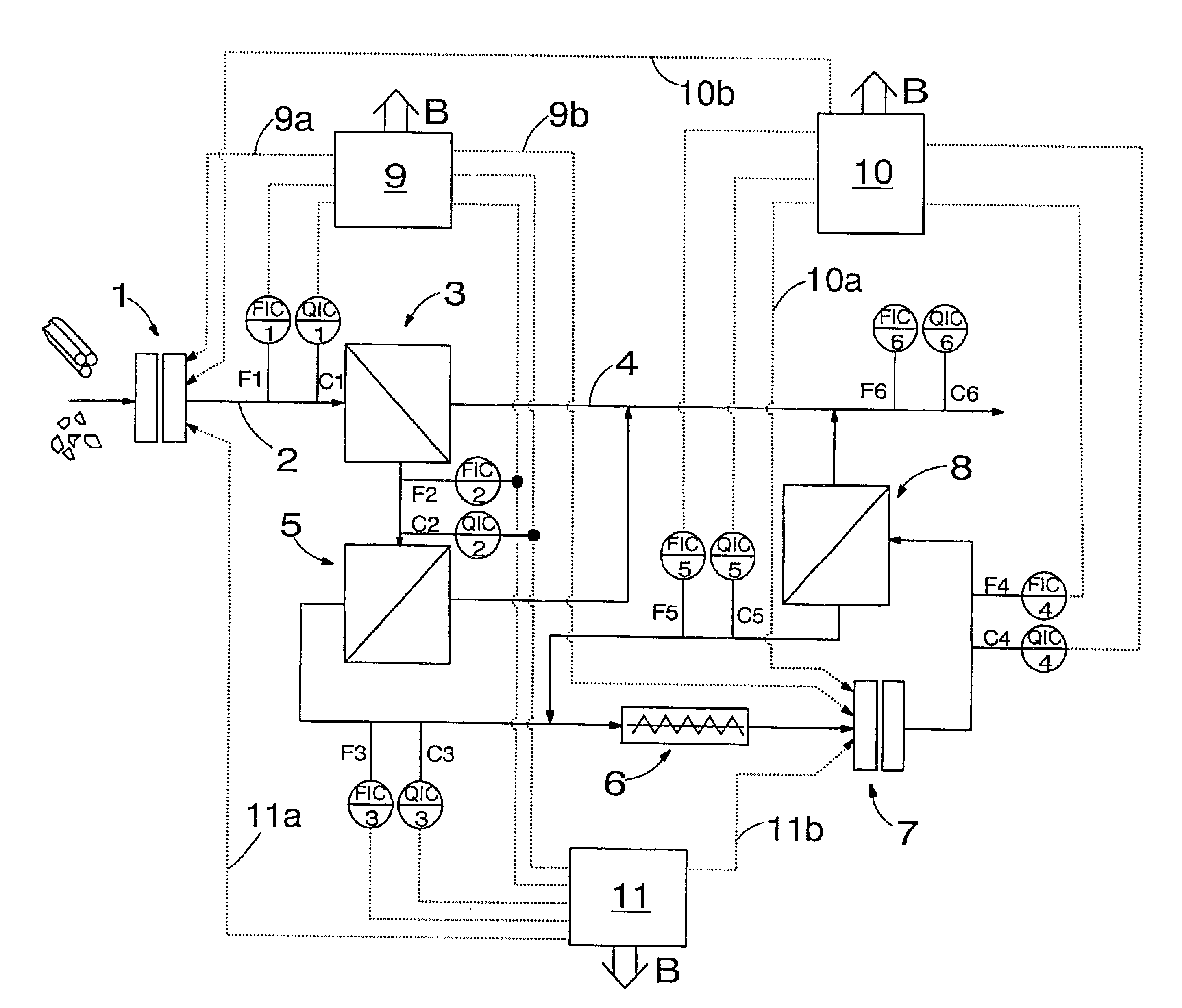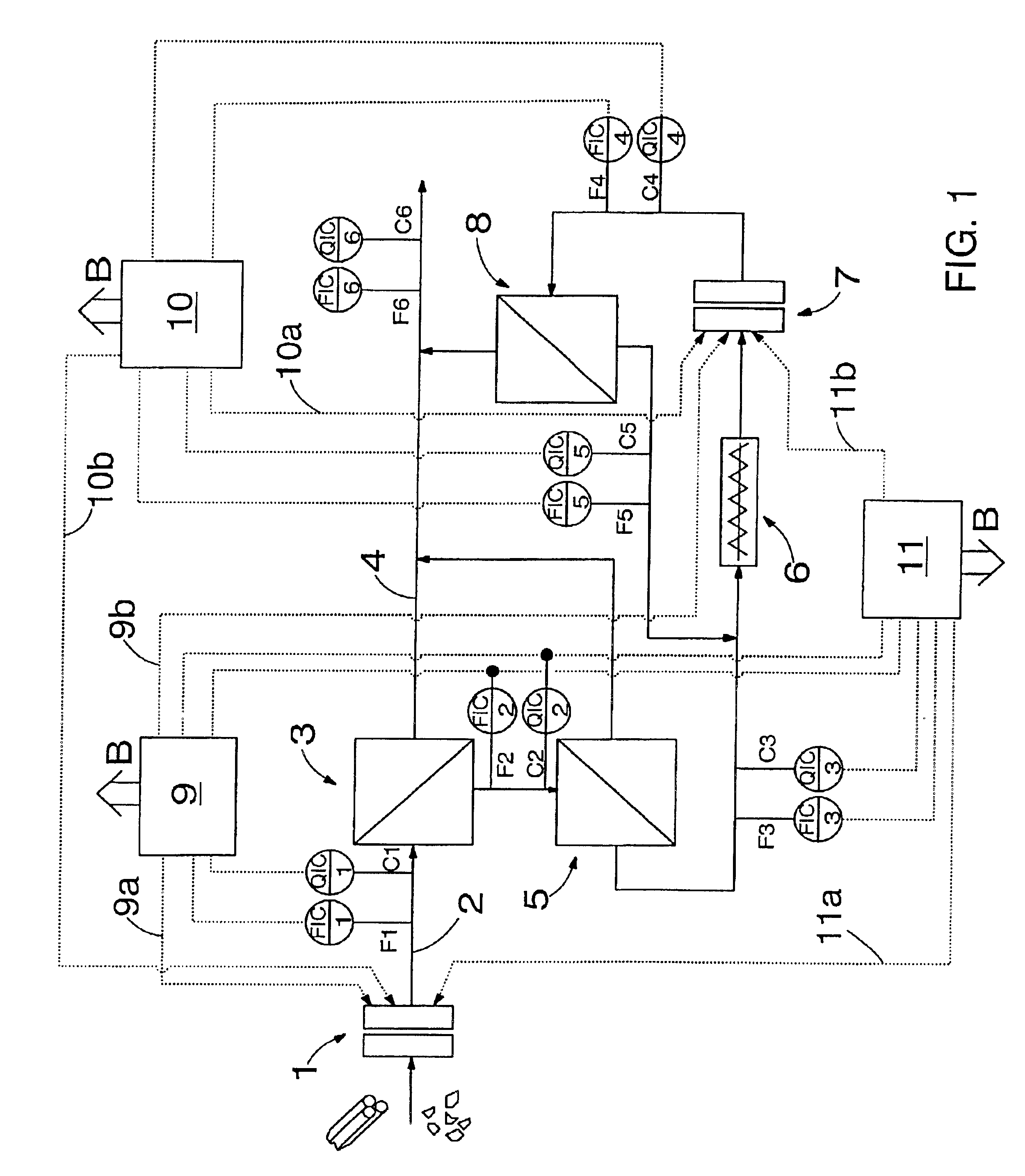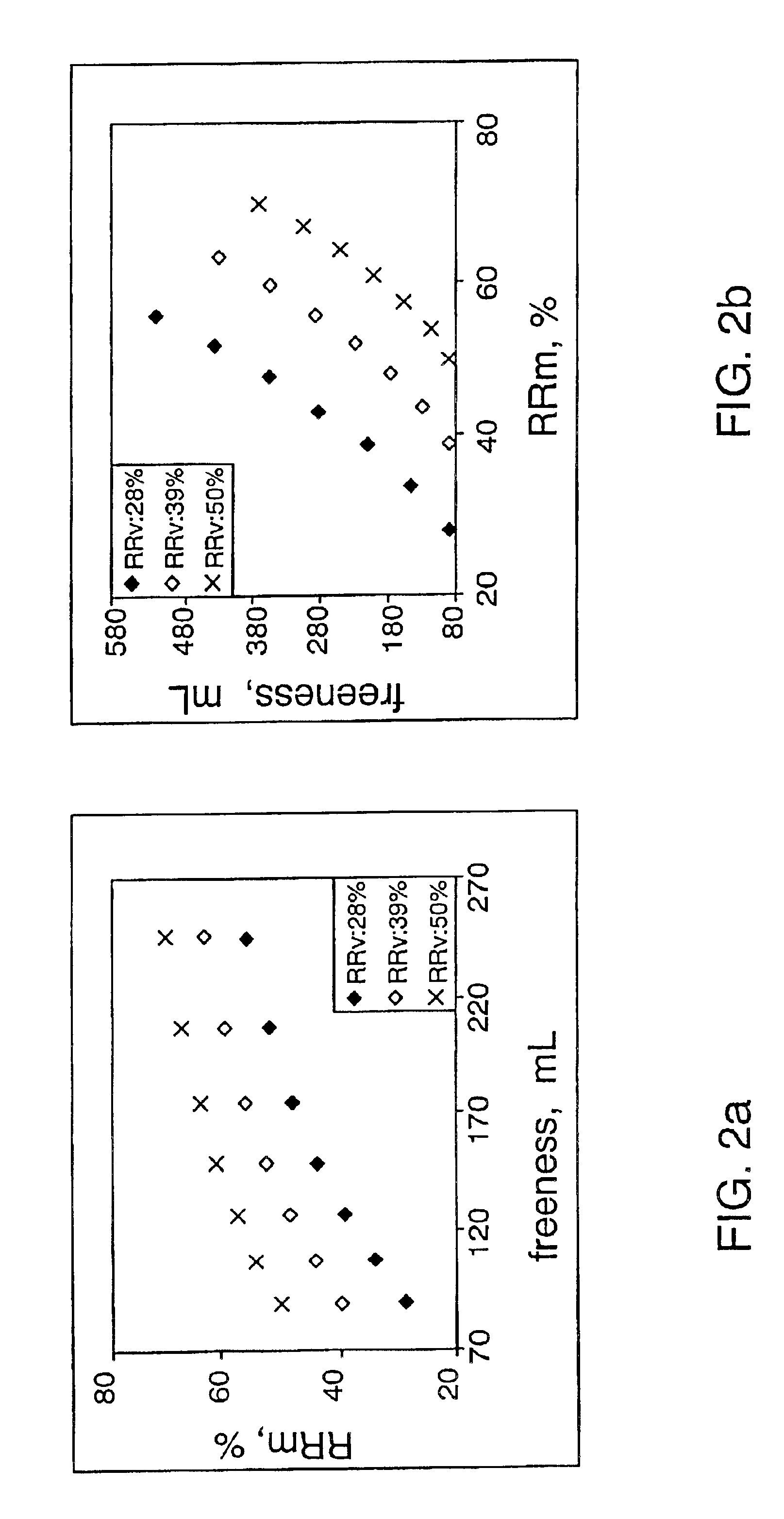Method for controlling quality of pulp
a technology of pulp quality and control method, which is applied in the direction of multi-stage pulping process, paper-making, digesters, etc., can solve the problems of only controlling the capacity of screening, affecting the quality of the fibrous web made from pulp, and cannot be used in exceptional circumstances to control the process. , to achieve the effect of improving the quality of both the further process and the quality of the fibrous web
- Summary
- Abstract
- Description
- Claims
- Application Information
AI Technical Summary
Benefits of technology
Problems solved by technology
Method used
Image
Examples
Embodiment Construction
The present invention now will be described more fully hereinafter with reference to the accompanying drawings, in which some, but not all embodiments of the invention are shown. Indeed, the invention may be embodied in many different forms and should not be construed as limited to the embodiments set forth herein; rather, these embodiments are provided so that this disclosure will satisfy applicable legal requirements. Like numbers refer to like elements throughout.
In FIG. 1 wood is defibered in the presence of water in a primary defibrator 1 to produce pulp either by grinding wood in a grinding machine or by refining wood chips, depending on whether the primary defibrator 1 is a grinding machine or a refiner. There may be one or more primary defibrators 1, and they may be all alike or, if necessary, different types of primary defibrators may be used to form a primary defibrator entity, hereinafter referred to as a primary defibrator.
From the primary defibrator 1 the pulp is carrie...
PUM
| Property | Measurement | Unit |
|---|---|---|
| Fraction | aaaaa | aaaaa |
| Power | aaaaa | aaaaa |
| Flow rate | aaaaa | aaaaa |
Abstract
Description
Claims
Application Information
 Login to View More
Login to View More - R&D
- Intellectual Property
- Life Sciences
- Materials
- Tech Scout
- Unparalleled Data Quality
- Higher Quality Content
- 60% Fewer Hallucinations
Browse by: Latest US Patents, China's latest patents, Technical Efficacy Thesaurus, Application Domain, Technology Topic, Popular Technical Reports.
© 2025 PatSnap. All rights reserved.Legal|Privacy policy|Modern Slavery Act Transparency Statement|Sitemap|About US| Contact US: help@patsnap.com



